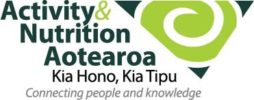17 Oct Studying Food and Nutrition at School
Three young men share their experience of studying food and nutrition at school
Luke Elliott, Josef McDonell and Aaron Donohue studied Level 3 Food and Nutrition (previous known as Home Economics). They were lucky to have Nicola Potts, a teacher at Saint Patrick’s College Silverstream, to inspire them with her passion for the subject.

They share a wonderful story about how studying food and nutrition as set them up for future health and wellbeing.
Leaving Food and Nutrition as year 13’s has left us with a wealth of experience to navigate the complex world of misinformation surrounding food and health products. Being able to understand the socio-ecological context of food politics and the impact that they can have on not just our personal health but also the scale that they can affect society’s choices.
Often seen as a ‘cabbage’ class, or one that is considered easy, our teacher likes to remind us that cabbages are layered, just as nutrition is. Made up of a variety of complex components that combine to determine our health and wellbeing. We have developed many important skills and strongly improved our food literacy through studying the diverse aspects of nutrition and wellbeing, which is something that will be very beneficial for us as we wade through the unfamiliar waters outside of our college community. Everything from understanding the relationship of protein and muscle development, to the importance of the Treaty of Waitangi in today’s social justice climate. Food and nutrition is about more than just eating food, it’s about understanding the complexities and contributing factors of our Hauora.
Throughout our time in class, some of us having been present throughout our secondary school journey, we have covered a very large range of topics but above all, we have learned how to be perceptive in our thinking. To look beyond labels or base statements and explore deeper and deeper until we begin to develop our own ideas and thoughts on a topic. While we did indeed learn this within a food context, this kind of education is one that transcends our high school education and carries over into our lives. Being a healthy contributor to society is truly a holistic experience, where maintaining each aspect of your Hauora allows you to live a life that is whole and satisfying. Crucially, the role of food in this can be one of the most influential of them all. Food is a community and cultural item. It has the capacity to heal you physically, mentally, socially and spiritually. After our five years of Food and Nutrition, this is the message that we feel is most important. The world brings with it a barrage of information that influences the decisions you make, but it is up to you to be able to filter through it all. Whether that is food advertising or cultural adversity, looking deeper than just what is told on the surface is what’s important. Unpacking the layers is where that change occurs.

